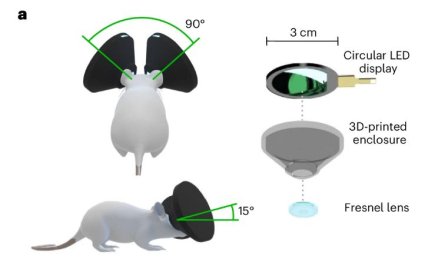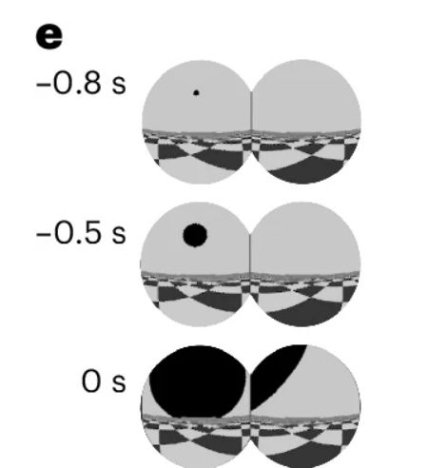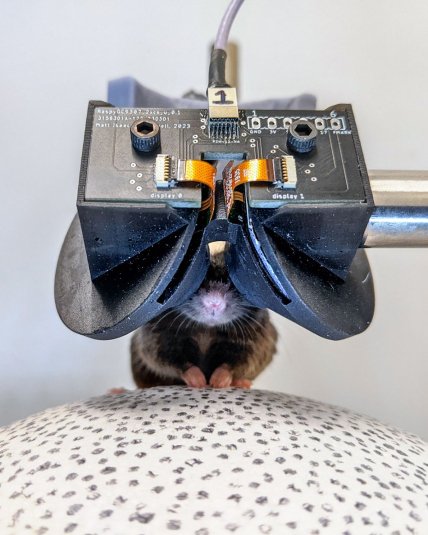Researchers have sent mice into a "matrix" by creating virtual reality glasses for them (video).
Scientists have equipped mice with virtual reality goggles. While this may sound bizarre, there is actually a logical reason behind it.
The study published in Nature Methods focuses on tracking brain activity related to spatial navigation and memory. The specific task required the development of a specialized tool.
Initially, researchers created a "room" for the mice, featuring panoramic displays that projected the required imagery. Although the rodents quickly grasped what was expected of them, their brain activity was not sufficiently engaged.
This led to the hypothesis that the animals did not genuinely believe in the reality of what they were seeing. For instance, in one of the tests, they were shown a dark spot that rapidly expanded in their field of vision, mimicking the behavior of a predator. None of the mice exhibited any significant reaction when using the old systems.
However, the new MouseGoggles, consisting of two small displays from smartwatches and a pair of lenses, elevated the simulation to a new level. Since even this small setup would be too heavy for the tiny animals, it was decided to mount it on a stand. The mouse itself was placed on a spherical surface that rotated based on the direction it intended to run.

"They exhibited a strong startle response. They genuinely seemed to believe that an approaching predator was attacking them," the scientists state.

So, what is the essence of the research? The scientists explain that the goal was to devise an inexpensive virtual reality device for mice to test their reactions across a wide range of situations without the need to create suitable laboratory conditions. Additionally, this system has other advantages, such as the potential to incorporate eye-tracking systems, which would be very challenging to monitor using traditional study methods.
The study also concludes that mice can perceive virtual reality just as well as the real world, at least in certain experiments. This could assist in conducting tests aimed at exploring complex behavioral responses, visual perception, learning, and spatial memory.
Now, the researchers aim to create actual virtual reality goggles for mice that the rodents can wear on their heads. Although the new device works significantly better than the older systems, it partially obstructs the mouse's whiskers, which are crucial sensory organs.

As previously reported, at the end of 2023, scientists made rats play video games and discovered that they possess imagination. This suggests that humans are not the only animals capable of fantasizing.